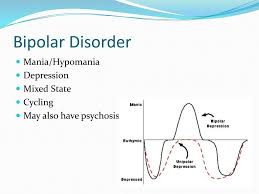 What is Hypomania? This can be found along with the bipolar spectrum. Hypomania is often seen as a mania lite. The symptoms don’t last for a long time. However, they can affect your job, family life, relationships and school. People that suffer from hypomania may be impulsive and have risky behavior. They may also unnecessarily spend a lot of money. Normally, hypomania will last more than a week. This includes the psychotic feelings. Sometime a hospital visit is required.
What is Hypomania? This can be found along with the bipolar spectrum. Hypomania is often seen as a mania lite. The symptoms don’t last for a long time. However, they can affect your job, family life, relationships and school. People that suffer from hypomania may be impulsive and have risky behavior. They may also unnecessarily spend a lot of money. Normally, hypomania will last more than a week. This includes the psychotic feelings. Sometime a hospital visit is required.
Symptoms Of Hypomania
- Talking fast
- Easy to become irritated
- Difficult time sleeping
- Lots of energy
- Euphoria
- Racing thoughts
- Inflated self esteem
- Poor judgment
- Risky behavior
- Sexual promiscuity
Helpful Suggestions For Those That Suffer From Hypomania
- Have a nice sleep. If you are not able to sleep, call your doctor and consult to him/her.
- Do not jump to any important decision. Wait until you are feeling better.
- Keeps your thought process in a focused direction. Give your thoughts directions.
- Don’t spend your money. Keep them in some safe and reliable hands. They will further help you in future.
- Engage yourself in relaxing and calming activities. Stay away from over stimulating environments.
- Avoid disco, dance and going to bar. The environment which these things have trigger the feel of hypomania.
- Consult to any support person and let your feelings and understanding known to them.
- You should go and talk to your doctor before things slip out of your hands. He/She will help you help yourself.
- Do not consume excess sugar, caffeine and alcohol. Eat balanced diet.
Treatments: The same medications as for mania. These include mood stabilizers such as lithium, Tegretol, Depakote, Topamax, Lamictil,and Neurontin. Some people respond to high doses of omega 3 fish oils.
- Atypical antipsychotics, eg olanzapine, quetiapine, risperidone. These are used as their onset is quicker and they have lower incidence of extra-pyramidal side-effects.
- Benzodiazepines, such as lorazepam, may be needed to aid sleep or reduce agitation.
- Mood stabilisers can also be used (usually under specialist guidance). They include lithium, which has a slower onset of action, so tends only to be used alone if less severe symptoms are present and valproate (but not in females of child-bearing age).
- Carbamazepine is sometimes used as a first-line treatment and again only under specialist supervision.
